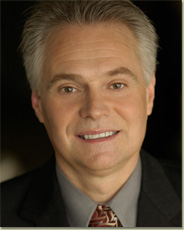The Great Influenza. The epic story of the deadliest plague in History. John M.Barry.
The Great Influenza. The epic story of the deadliest plague in History. John M.Barry. 2004. ISBN 1101200979. This is one of the most frightening books i have ever read as well as one of the most fascinating. A history of the growth in us medical care in the early 1900’s in the leadup to the 1917 influenza outbreaks all through the states. The improvements in medical schools were not a government push but one through private benefactors (such as Rockefeller). Govt officials and many medical. / public health officials were ignorant, incompetent and/or corrupt at the time. As there was WWI on there a push to keep morale up – by downplaying the seriousness of the situation. Once the flu hit the overcrowded and often unsanitary huge army and navy yards through the country it ran rampant. killing thousands. Add to that incompetent city officials who ignored the advice of the medical minds, which led to thousands of unnecessary civilian deaths.
The stories of the tireless medical minds who attacked these and other infectious diseases is also fascinating. The author is very skilled in this. Would that more folks read this before the Covid outbreaks and we may have even been speedier in responding. A delight – but frightening as I said.
No Time Like the Future. An optimist considers mortality. Michael J.Fox.
No Time Like the Future. An optimist considers mortality. Michael J.Fox. 2020. ISBN 9781250265623. What a heartfelt memoir by quite a decent Canadian born actor. This starts when Michael was in his twenty’s, with a burgeoning acting career, learning he had up MS and then living with it to his mid-fifties Its raw and full of emotion as to how he was and is feeling. How the acting gigs changed and Michael changed over time. He gives full compliments to his wife and family and caregivers for their support and tireless patience with what was so often a real problem patient. Laugh when he discusses his drug induced hallucinations. Feel for those around hm for their belief in him. Lots of lessons to be learned from this book.
Category: Technology Industry
How the World Really Works. The science behind how we got here and where we are going. Vaclav Smil.
How the World Really Works. The science behind how we got here and where we are going. Vaclav Smil. 2022. ISBN 9780593297070.
This could be one of the top books of the year for me. Perhaps it’s my increasing age in conjunction with cynicism but I was ready for this book. The author is recognized as top 100 global Thinker. In some way a Rennaissance man, Vaclav brings a realistic view to the what is going on today. I always distrust politicians and public figures who preach a simplistic view of how we can “fix’ the world’s problems. (Perhaps that is due to the public regularly electing some of the truly stupid to public office. ) All countries, like Canada are deeply inter related internally and with other countries in politics, supply chains, resources and the lists go on. To improve the situation means that one must be realistic about ‘how the world works’. As an engineer I have been suspicious of politicians and think tanks pushing such things as a zero-carbon economy in 10-20 years. The author does a realistic analysis of this and shows that if we require cement, steel, ammonia (for fertilizer/food production) and electricity to build this future – that requires huge energy investments – well beyond what the alternatives to fossil fuels can and will provide for many years. A simple analysis of the energy required to “push” a jet passenger plane through the air shows that only fossil fuels provide the power to weight ration needed.
The author does not say do not address global warning, on the contrary he says we must. But he points out just how long this is going to take. (Decades and decades or more), if the World even really addresses it.
He asks are we willing to deny the African nations the chance to develop their economies like China has done? If so, they will need huge amounts of energy (fossil fuels) which will release emissions (CO2) into the atmosphere.
India and China still process and burn huge amounts of coal and will continue to do so as well as buying Russian oil regardless of world opinions.
Do the Western and EU nations wish to restrict their own “consumption” in order to reduce emissions? (They are already well ahead of the developing world in this).
He posits several changes to codes etc. that will assist us in reducing some energy consumption (Ie triple paned windows for all buildings, reducing food waste, more nuclear energy, producing and supporting local).
All in all, a very insightful book that brings rational thought to these arguments.
Category: Future, History, International


